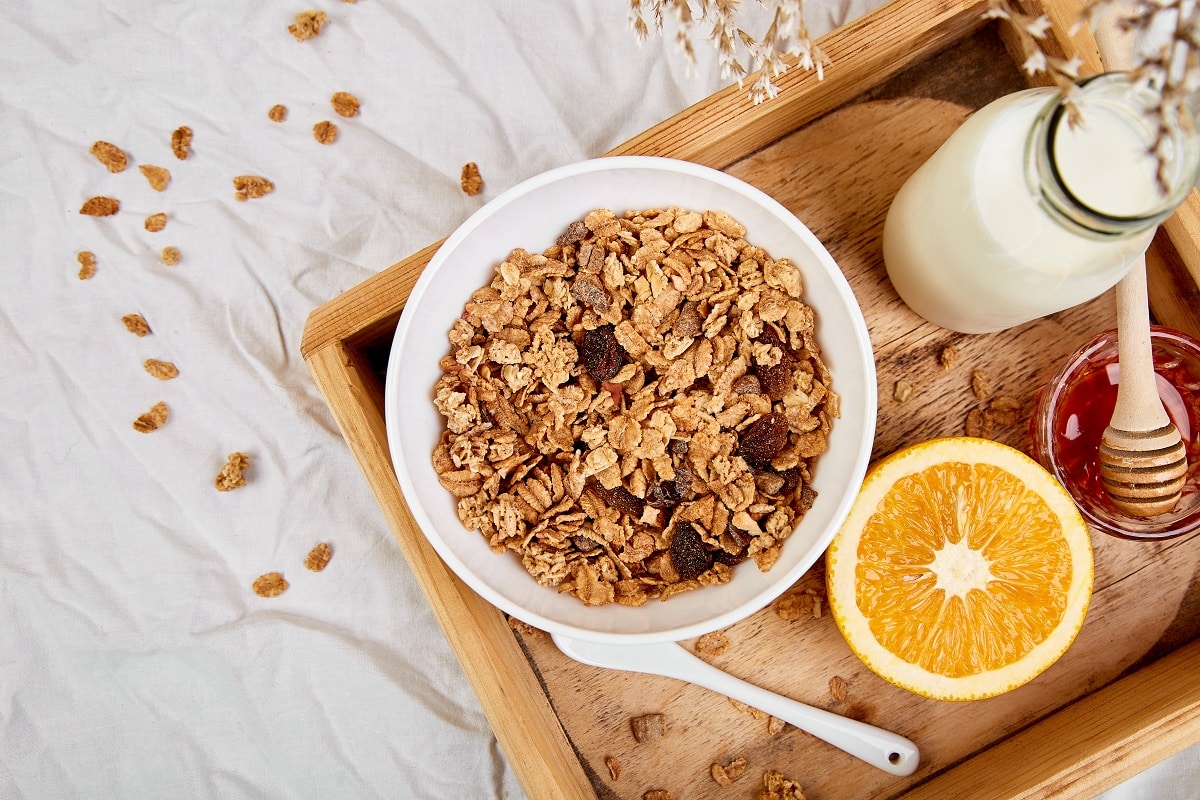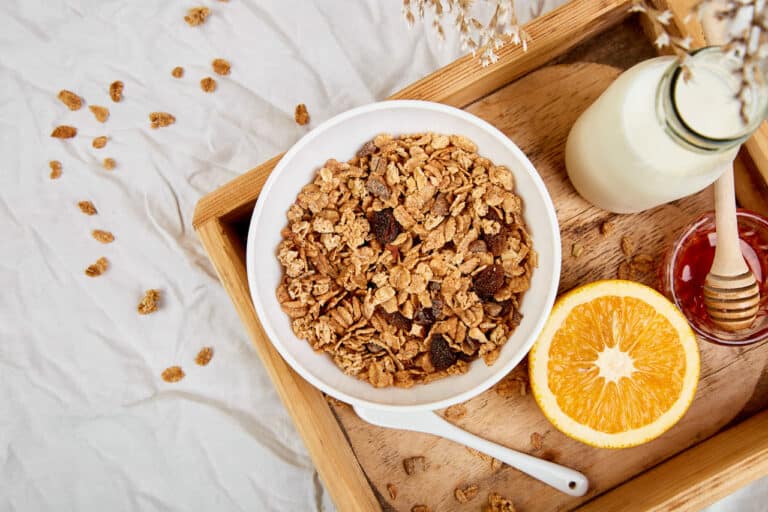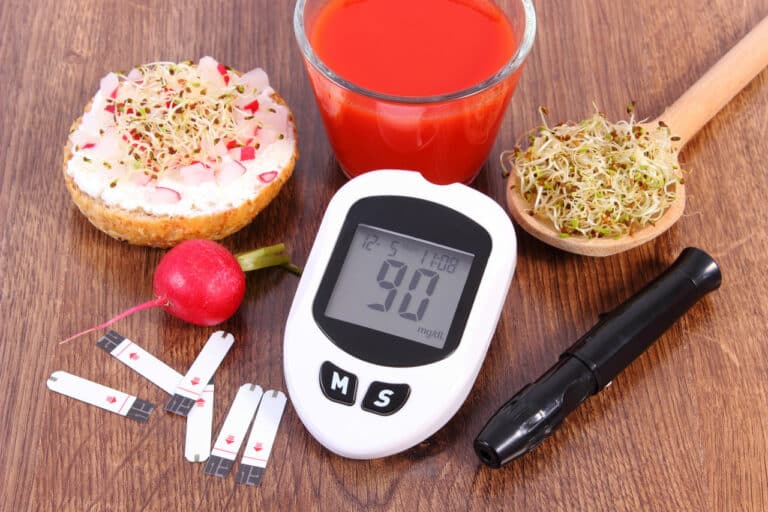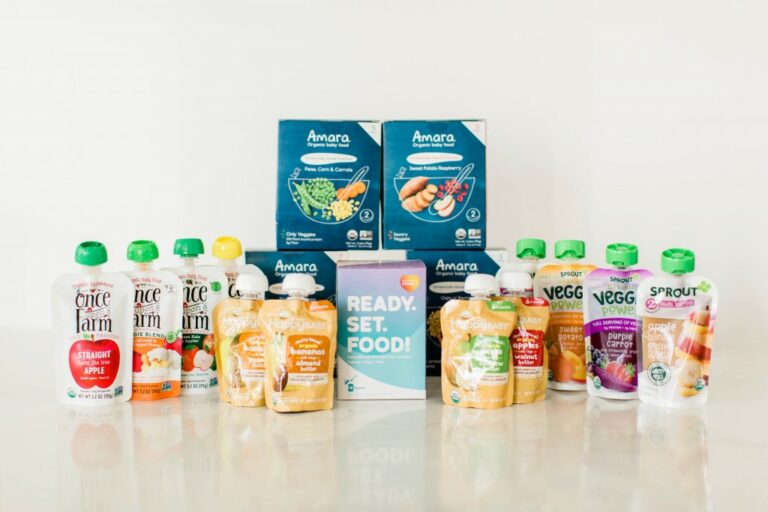Are you looking to improve your gut health? If so, you’re in luck! There are many different breakfast foods that can help get your gut flora on track. This blog post will discuss the thirteen best breakfast foods for gut health. So, without further ado, let’s get started!
A well-balanced breakfast is a key to starting your day off on the right foot. It provides energy and sustenance and can also help keep your gut health in check, so it’s essential to fuel your body with healthy foods in the morning.
In This Article
Best breakfast foods for Gut Health:
There are many factors that contribute to gut health, and what you eat is one of them. Healthy eating a nutritious breakfast can help promote a healthy gut by providing the essential nutrients your body needs to function properly. Different breakfast foods can help improve gut health, but some are better than others. Here are thirteen of the best breakfast foods for gut health:
1. Oats
Oats are a nutritious foods that can help improve gut health as they are excellent sources of soluble fiber. In addition to promoting regularity, this type of fiber can also reduce cholesterol levels by binding to bile acids and removing them from your body.
Oats are also a good source of prebiotics. Prebiotics are a type of indigestible carbohydrate that feeds the beneficial bacteria in your gut. These bacteria then produce short-chain fatty acids, which are thought to have several health benefits, including reducing inflammation and improving gut barrier function.
2. Coffee
Coffee is rich in antioxidants and has been linked to several health benefits, including improved gut health. One study found that coffee consumption was associated with a lower risk of inflammatory bowel disease as coffee is a good source of polyphenols, which are antioxidants that can help reduce inflammation and promote a healthy gut microbiome. Additionally, coffee has been shown to increase the production of short-chain fatty acids, which are beneficial for gut health.
3. Berries
Berries are small but packed with fiber, vitamins, and antioxidants. Blueberries, in particular, contain a type of soluble fiber called pectin. Soluble fiber can help relieve constipation by drawing water into your stool and increasing its bulk. This process can also help keep things moving through your digestive tract more regularly.
Blueberries are also rich in antioxidants, which can help reduce inflammation throughout your body. Studies suggest that the anthocyanins in fresh berries may improve a healthy breakfast by inhibiting the growth of harmful bacteria and promoting a healthy balance of gut flora.
4. Apple
Apples are a good source of both soluble and insoluble fiber. Soluble fiber can help reduce cholesterol levels and regulate blood sugar levels, while insoluble fiber helps add bulk to your stool and prevents constipation.
Apples are also a good source of prebiotics. Studies found that eating two apples per day for four weeks increased beneficial gut bacteria levels while simultaneously reducing harmful bacteria.
5. Sauerkraut
Sauerkraut is a type of fermented cabbage. It is rich in probiotics, which are beneficial bacteria that live in your gut. Probiotics offer several health benefits, including improving gut barrier function and reducing inflammation. Sauerkraut is also a good source of vitamins, minerals, and antioxidants. These nutrients are important for gut health because they help the body absorb nutrients from food and keep the digestive system functioning properly. Sauerkraut is also a good source of fiber. Fiber helps keep things moving along in your digestive system and can also help reduce the risk of constipation.
6. Green Tea
Green tea is rich in antioxidants and has been linked to several health benefits. These benefits may be due, in part, to the presence of catechins. Catechins are a type of antioxidant that can help reduce inflammation and promote a healthy gut microbiome.
One study found that green tea consumption was associated with a lower risk of inflammatory bowel disease. Additionally, another study showed that green tea catechins might help improve gut barrier function.
7. Chia Seed
Chia seeds are rich in fiber and omega-3 fatty acids. Fiber helps keep things moving along in your digestive system and can also help reduce the risk of constipation. Additionally, chia seeds are a good source of prebiotics. Prebiotics help promote the growth of beneficial gut bacteria and keep the digestive system functioning properly.
Chia seeds are also a good source of vitamin c and other vitamins too, minerals, and antioxidants. These nutrients are important for gut health because they help the body absorb nutrients from food and keep the digestive system functioning properly.
8. Whole Grain Toast
Whole grain toast is a good source of fiber, which is important for gut health. Fiber helps keep things moving along in your digestive system and can also help reduce the risk of constipation. Additionally, whole wheat toast or grain toast provides other essential nutrients for health, including vitamins A and E, potassium, magnesium, selenium, and more.
9. Eggs
Eggs are a good source of 13 grams of protein and contain several important nutrients for gut health, including choline, selenium, and vitamin B12. Choline is an essential nutrient that helps keep the digestive system running smoothly. Selenium is an antioxidant that can help reduce inflammation and promote a healthy gut microbiome. Vitamin B12 is important for gut health because it helps the body absorb nutrients from food and keeps the digestive system functioning properly.
10. Kefir
Kefir is related to yogurt but thinner in consistency because it is a liquid. Kefir is made by adding kefir grains to milk and allowing it to ferment. Kefir grains are a type of bacteria that helps fermented foods like plain greek yogurt and sauerkraut maintain their probiotic content.
Kefir is rich in probiotics, which are beneficial/healthy bacteria that live in your gut. Probiotics are thought to offer several health benefits, including improving gut barrier function and reducing inflammation. Kefir is also a good source of vitamins, minerals, and antioxidants. These nutrients are important for gut health because they help the body absorb nutrients from food and keep the digestive system functioning properly.
11. Nuts
Nuts are a good source of fiber, protein, and healthy fats. Fiber helps keep things moving along in your digestive system and can also help reduce the risk of constipation. Additionally, nuts are a good source of prebiotics, which are important for gut health. Prebiotics help promote the growth of healthy gut bacteria and keep the digestive system functioning properly. You can also get on almond butter, nut butter, nut almond milk, and many more types of nuts or nut butter.
12. Cottage Cheese
Cottage cheese is a good source of protein and calcium. It also contains live and active cultures, which are beneficial bacteria that can help improve gut health. These live and active cultures may help reduce inflammation and promote a healthy gut flora balance.
Cottage cheese is also a good source of vitamins A and B12, both of which are important for gut health. Vitamin A helps the body absorb nutrients from food and keeps the digestive system functioning properly. Vitamin B12 is important for gut health because it helps the body absorb nutrients from food and keeps the digestive system working properly, so make sure to eat cottage cheese for breakfast.
13. Avocado
Avocados are a good source of healthy fats, fiber, and vitamins. Healthy fats help keep the digestive system functioning properly. Fiber helps keep things moving along in your digestive system and can also help reduce the risk of constipation. Additionally, avocado toast is a good source of vitamins A, E, and K, all of which are important for gut health.
Vitamin A helps the body absorb nutrients from food and keeps the digestive system functioning properly. Vitamin E is an antioxidant that helps protect the body from inflammation. Vitamin K is important for gut health because it helps the body absorb nutrients from food and keeps the digestive system functioning properly.
These are just a few of the best breakfast foods for gut health. Adding these foods to your diet can help improve your gut health and overall health.
What is the healthiest breakfast for gut health?
There is no one-size-fits-all answer to this question, as the best breakfast for gut health may vary depending on your individual gut microbiome. However, there are some general tenets that you can follow to choose a healthy breakfast for your gut.
- First, it’s important to include fiber-rich foods in your breakfast. Fiber helps keep things moving along in your digestive system and feeds the healthy bacteria in your gut. Foods like oats, fresh fruit, vegetables, and chia seeds are all good sources of dietary fiber.
- Another key component of a healthy Breakfast for gut health is protein. Protein provides the amino acids needed to repair and maintain the gastrointestinal tract. Eggs and Greek yogurt, protein powder, or bar are excellent sources of protein and can help promote a gut microbiome.
- Finally, it’s important to include foods that contain live and active cultures in your breakfast. These live and active cultures, or probiotics, help promote healthy gut bacteria growth. Foods like yogurt, kimchi, sauerkraut, and kefir are all good sources of probiotics.
Including these gut-healthy foods in your first meal will help promote a healthy gut microbiome and improve overall health, including mental health too.
What’s the Best lunch for gut health?
The best lunch for gut health depends on the individual. However, some general guidelines for optimal gut health include eating various healthy foods, including plenty of fiber and protein, and avoiding processed foods and added sugar drinks.
Suppose you’re looking for a specific gut-friendly lunch suggestion. In that case, some good options include homemade roasted chicken or fish with mixed vegetables, lentil soup, or a simple salad with avocado and grilled chicken. In addition, it’s important to remember that what you eat at lunchtime can significantly impact your overall digestive health. So choosing healthy, nutrient-rich foods is key to keeping your gut happy and functioning properly.
What foods are good for gut repair?
There are many different foods that are good for gut repair, and the best foods for you will vary depending on your specific dietary needs. However, some general examples of gut-friendly foods include fiber-rich fruits and vegetables, fermented foods like yogurt and sauerkraut, omega-3-rich fish like salmon and sardines, and bone broth.
Everyone can benefit from eating these foods, as they all support gut health differently. For example, fiber helps to increase the number of good bacteria in the gut, while omega-3 fatty acids help to reduce inflammation. And bone broth is especially beneficial for gut health because it contains healing compounds like collagen and glutamine.
So whether you’re trying to heal a leaky gut or want to maintain healthy gut flora, eating a variety of whole foods is the key.
What breakfast is good for the gut?
No one breakfast is good for the gut. Instead, it is important to focus on eating a variety of whole foods that are rich in fiber and other nutrients that support gut health. Some good options include oats, Chia seeds, ground flaxseed, quinoa, fruits, and vegetables. If you are looking for ways to add more gut-friendly foods to your diet, many fermented foods, such as kimchi, sauerkraut, and yogurt, are great for gut health. Additionally, drinking plenty of water helps to keep the digestive system moving and can help to prevent constipation.
To Conclude
Finally, we would like to remind you that while many breakfast foods support gut health, it is important to also consider your overall diet and lifestyle. Eat a variety of nutrient-rich foods throughout the day, get enough exercise, and limit processed snacks and sugary drinks. Any of these options can help you start your day off right while promoting a healthy digestive system. If you’re looking to mix things up, feel free to rotate through some of these choices regularly. And if you want more information on creating a gut-friendly diet, check out our other blog posts on the subject. Thanks for reading!








![Home Renovation Guide [2025]](/app/uploads/2021/04/design-hacks-1-378x300.jpg)


